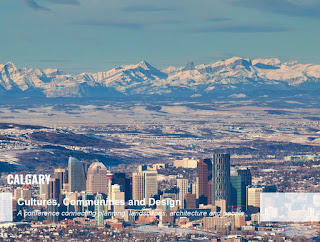Dates: 28-30 June 2022
Location: University of Calgary, Calgary, Alberta, Canada
Website: AMPS Calgary
Deadline for submission of abstracts: 1 July 2021 (early)
Rem Koolhaas argues that the 'countryside' is now the site of the most significant development on the planet. This conference engages in that provocation from a nuanced standpoint. Bringing the city and its surrounding areas into dialogue it is open to various disciplinary perspectives. Full call below.
As it celebrates its 50th Year anniversary in 2021-22, the School of Architecture, Planning and Landscape at the University of Calgary sees this conference as engaging in the interdisciplinary ethos of its origins. It seeks to debate contemporary questions of architecture, the city, society, rights and the environment globally. It argues that each of these disciplines are interrelated fields of thought and practice, and that the lessons learnt in one place and time, are useful in another.
Deadline for submission of abstracts: 1 July 2021 (early)
Rem Koolhaas argues that the 'countryside' is now the site of the most significant development on the planet. This conference engages in that provocation from a nuanced standpoint. Bringing the city and its surrounding areas into dialogue it is open to various disciplinary perspectives. Full call below.
THEMES
Design + Planning; Society + Cultures; Infrastructure + Building; Teaching + learningPROVOCATION
'The Countryside' - a polemically generic term Rem Koolhaas has recently used to reposition debates about our cities to those of rural areas. While posited as 'new', it is, in reality, a well established mode of thinking. Through notions such as the peri-urban for example, geographers, sociologists, architects, urban designers and regional economists have all debated the urban-rural relationship for several decades. Under this framework we are obliged to consider the city and its architecture on its own terms, but also address the 'rural' in its particular context and, importantly, explore the parallels and mutual influences at play.ISSUES
According to this logic, the social, cultural, planning and design issues relevant in our cities find parallels outside the city fringe. Calgary, the host city of this conference, is a perfect example. It has heavy industry, a thriving business economy and a growing tourist sector. However, pockets of the city contend with poverty and gentrification. As a city, Calgary also 'pressures' its surrounding lands including the Rockies and the Banff nature reserve.HISTORY
While such debates are of concern today around the world, they were also highlighted 50 years ago when the host school of this conference was founded. Back then, Archigram and Buckminster Fuller argued that architecture, technology and the 'earth' were interconnected. Jane Jacobs connected the built environment with social concerns. Aldo van Eyke fought for communities and the participatory practices and, in 1971, the National Organization of Minority Architects (NOMA) was founded in the United States.As it celebrates its 50th Year anniversary in 2021-22, the School of Architecture, Planning and Landscape at the University of Calgary sees this conference as engaging in the interdisciplinary ethos of its origins. It seeks to debate contemporary questions of architecture, the city, society, rights and the environment globally. It argues that each of these disciplines are interrelated fields of thought and practice, and that the lessons learnt in one place and time, are useful in another.






COMMENTS